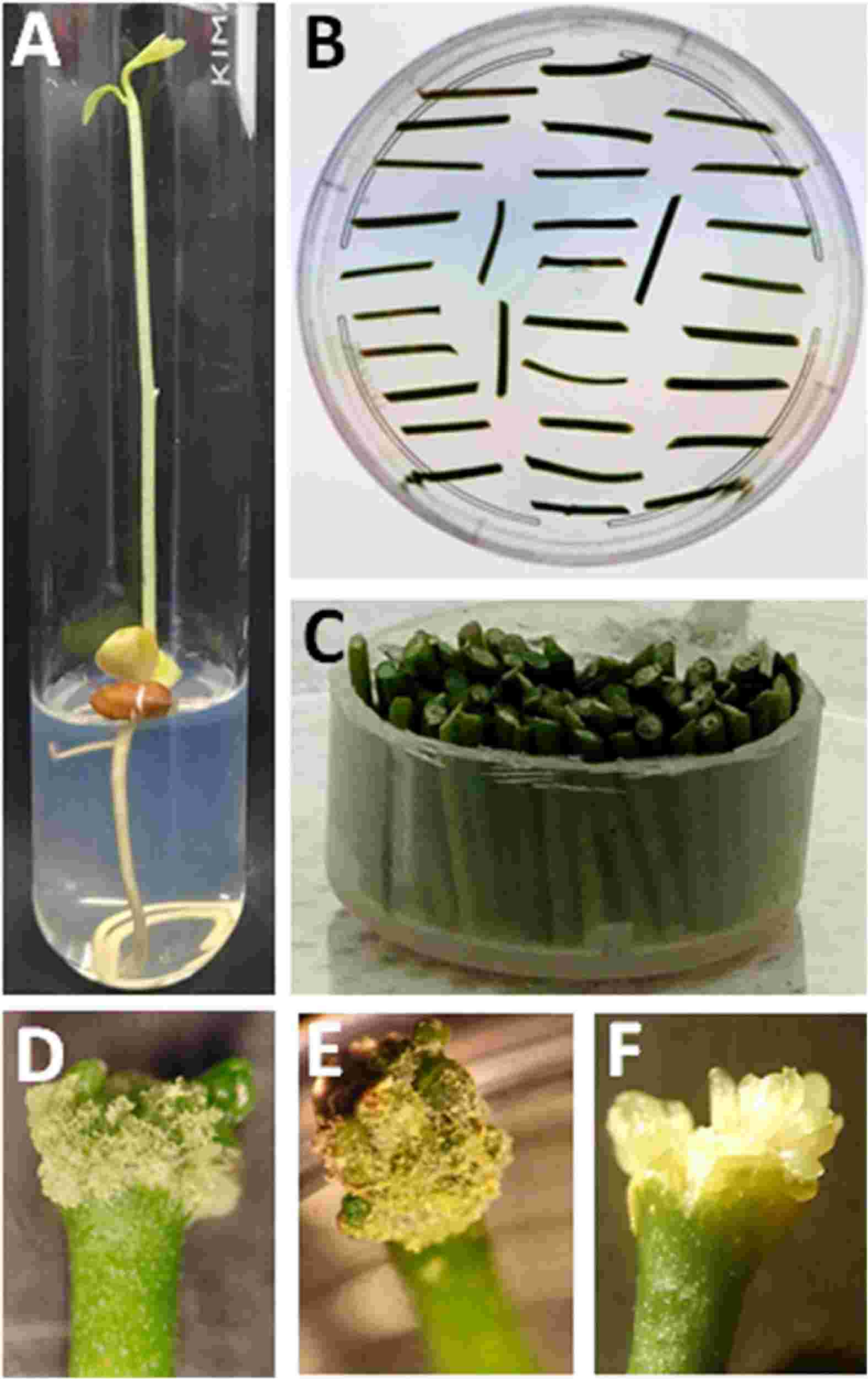Citrus is one of the most common fruit crops in the world. Despite its great genetic diversity and interspecific fertility, the genus Citrus includes some of the most difficult species to reproduce. Citrus has complex reproductive biology, such that most species are highly heterozygous and produce offspring that are widely segregated for many traits when crossed. Juvenile stages are often long, self- and cross-disaffinity, pollen and/or ovule sterility are relatively common, and the presence of indeterminate somatic embryos in the bead cores of most citrus-developing ovules greatly limits hybrid production. Consequently, traditional breeding methods for citrus improvement are time-consuming and challenging to implement. In addition, cultivated or wild citrus genotypes lack certain desirable traits. All these traits are challenging to integrate the desired traits. Genetic transformation provides an excellent strategy for the genetic enhancement of citrus because it is based on the introduction of specific traits into known genotypes without altering their good genetic background, and can be used in citrus breeding programs as it can release improved varieties with the desired traits in a shorter period.
 Fig. 1. Bombardment and regeneration of Citrus explants. (Conti et al., 2021)
Fig. 1. Bombardment and regeneration of Citrus explants. (Conti et al., 2021)
Implementing effective and reliable breeding programs is essential to meet the growing demand for citrus yield and quality and to counter the negative effects of rapidly spreading diseases. Lifeasible is an industry leader in plant genetic transformation and proudly provides cutting-edge genetic transformation services for citrus genera, including lemons, limes, tangerines, mandarins, mandarins, kumquats, common citrus and tangerines, oranges, grapefruits, etc. Our laboratory has realized citrus transformation through various methods such as Agrobacterium tumefaciens, particle bombardment, electroporation, RNA interference, etc.
Our citrus genetic transformation solutions are internationally recognized as tools for citrus improvement. It is particularly useful in situations where it is not possible to use conventional breeding to introduce a specific trait of interest into another superior variety. The citrus genetic transformation process involves two main processes, the first being the integration of the exogenous gene of interest into the plant genome and the second requiring the regeneration of the transformed cells into complete transgenic plants. Since citrus varieties vary in their response to in vitro organogenesis and genetic transformation, we offer optimized genetic transformation protocols for specific varieties.
This method involves the transfer and integration of genetic information into the plant genome through Agrobacterium-plant interactions. Depending on the species, the bacteria contain a rooting (Ri) or tumor-inducing (Ti) plasmid, which includes either a T-region or a transfer DNA region (T-DNA). This T-DNA region is genetically engineered to contain the target gene transferred during transformation. We offer Agrobacterium-mediated transformation experiments on many citrus hybrids and varieties, such as grapefruit, sour orange, sweet orange, trifoliate orange (Poncirus trifoliata Raf.), 'Carrizo' citrange, 'Mexican' lime, 'Swingle' citrumelo (C. paradisi x P. trifoliata), 'Cleopatra' mandarin, and alemow (C. macrophylla Wester)
We have a strict control system for factors affecting the transformation process, including species or variety specificity, age and type of exosomes used, the capacity of citrus cells or tissues, strains and inoculation procedures used with Agrobacterium, co-cultivation and pre-cultivation conditions, appropriate selection conditions, and recovery of transgenic shoots. We aim to achieve maximum efficiency in citrus transformation using Agrobacterium.
This method involves stimulation with polyethylene glycol (PEG) or electroporation to induce protoplast agglutination and subsequent DNA incorporation into plant citrus cells via endocytosis. Protoplast transformation is mainly used for commercially important citrus genotypes that are either seedless or contain few seeds, including lemons [C. limon (L.) Burm. F.], limes [C. aurantifolia (Cristm.) Swingle], mandarins (C. reticulata Blanco), grapefruits (C. paradisi Macf.), sweet orange (C. sinensis Osbeck), and sour orange (C. aurantium L.).
In this method, citrus plants are regenerated from protoplasts by somatic embryogenesis,, in addition, it eliminates the need for plant selection or bacterial suppression using antibiotics. We also used this method to improve sexually incompatible citrus genotypes by producing superior scion or rootstock somatic cell hybrids.
This method involves directly delivering DNA encapsulated on microprojectiles to plant citrus cells via a gene gun or a biolistic particle delivery system. This method can also be used when citrus genotypes are difficult to control. We offer transient expression experiments to improve the efficiency of citrus transformation.
We offer organogenesis (direct or indirect) or somatic embryogenesis to achieve regeneration of transgenic citrus plants.
This strategy can be applied to various citrus genotypes, including Carrizo citrange, Troyer citrange, sweet orange, Mexican lime, grapefruit, Swingle citrumelo, and P. trifoliata. We can control various factors to improve in vitro regeneration efficiency, such as explant orientation, polarity, contact of the cut surface with the culture medium, and growth regulator treatment.
We use different explants, such as protoplasts and embryogenic callus, to regenerate citrus-transformed species. We offer grafting methods for the generation of whole citrus plants from shoots derived from organogenesis and germinated somatic embryos. Some of the different citrus genotypes for which this technology has been applied include C. sinensis, P. trifoliata, C. aurantifolia, C. aurantium, and grapefruit.
Lifeasible offers state-of-the-art genetic transformation services for Citrus, providing growers and breeders with the tools to unlock the full potential of this extraordinary crop. If you are interested in our solutions, please contact us for technical consultation and quotation.
Reference
Lifeasible has established a one-stop service platform for plants. In addition to obtaining customized solutions for plant genetic engineering, customers can also conduct follow-up analysis and research on plants through our analysis platform. The analytical services we provide include but are not limited to the following:
July 13, 2024